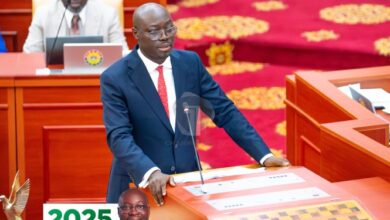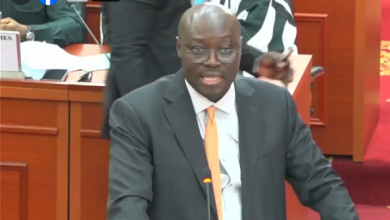
The central bank of Ghana, the Bank of Ghana (BoG), on Wednesday, 1 August 2018, announced the merger of five banks following their failure to meet the minimum capital requirement of GHS400 Million.
These banks are The Royal Bank, The BIEGE bank, Sovereign bank, Construction Bank and Unibank
This move forms part of the BoG’s plans of streamlining the financial sector.
Already the management of Capital and UT banks have been given to GCB bank.
Recently, the Chief Executive Officer of BEIGE confirmed that The BEIGE Bank (TBB), its universal banking subsidiary, is on course to meeting the Bank of Ghana’s (BOG) GHS400 million minimum capital requirement for universal banks by the end of December 2018.
According to Mike Nyinaku, “We have a gap of less than GHc100 million of the expected stated capital position required by the Central Bank and we will definitely meet this before the year ends”.
He said: “It has been a difficult year for indigenous banks without a doubt and we know that anxiety amongst customers has led to some of them re-directing their businesses. Having said that we are happy about the faith our customers have had in us”.
“Due to the appeal of our brand, the size and variety of services on our Group’s Platform, we have received expressions of interests both for equity participation in our business as well as merger propositions”, he said, adding, “However, while we are favourably considering them all, our aim – at the end of it all – is to preserve the indigenous identity of BEIGE”.
According to him, “Now that this hurdle is almost out of the way, our focus will be to direct our attention to the sale and distribution of our specialised Pension and Health Insurance Products which have been designed purposely to serve the retail market”.
Also, Mr Kofi Otutu Adu-Labi, Board Chairman has said: “The BEIGE Bank is well anchored”.
“Following our transition into universal banking, TBB is gradually implementing a three-year strategy aimed at restructuring our balance sheet in order for us to remain competitive whilst playing in our niche – the SME Market.
“This strategy is anchored on re-pricing our deposits and driving a lot of demand deposits to significantly reduce and align our cost of funds with the industry. The medium term effect is that the bank is able to restructure itself in a much shorter time to allow for competitive operations by year three.
“We are confident that the bank’s strong corporate governance systems and investments in safe assets will enable us remain very competitive beyond our achievement of the BOG’s minimum capital requirement,” Mr Adu-Labi added.
Source: Class FM




